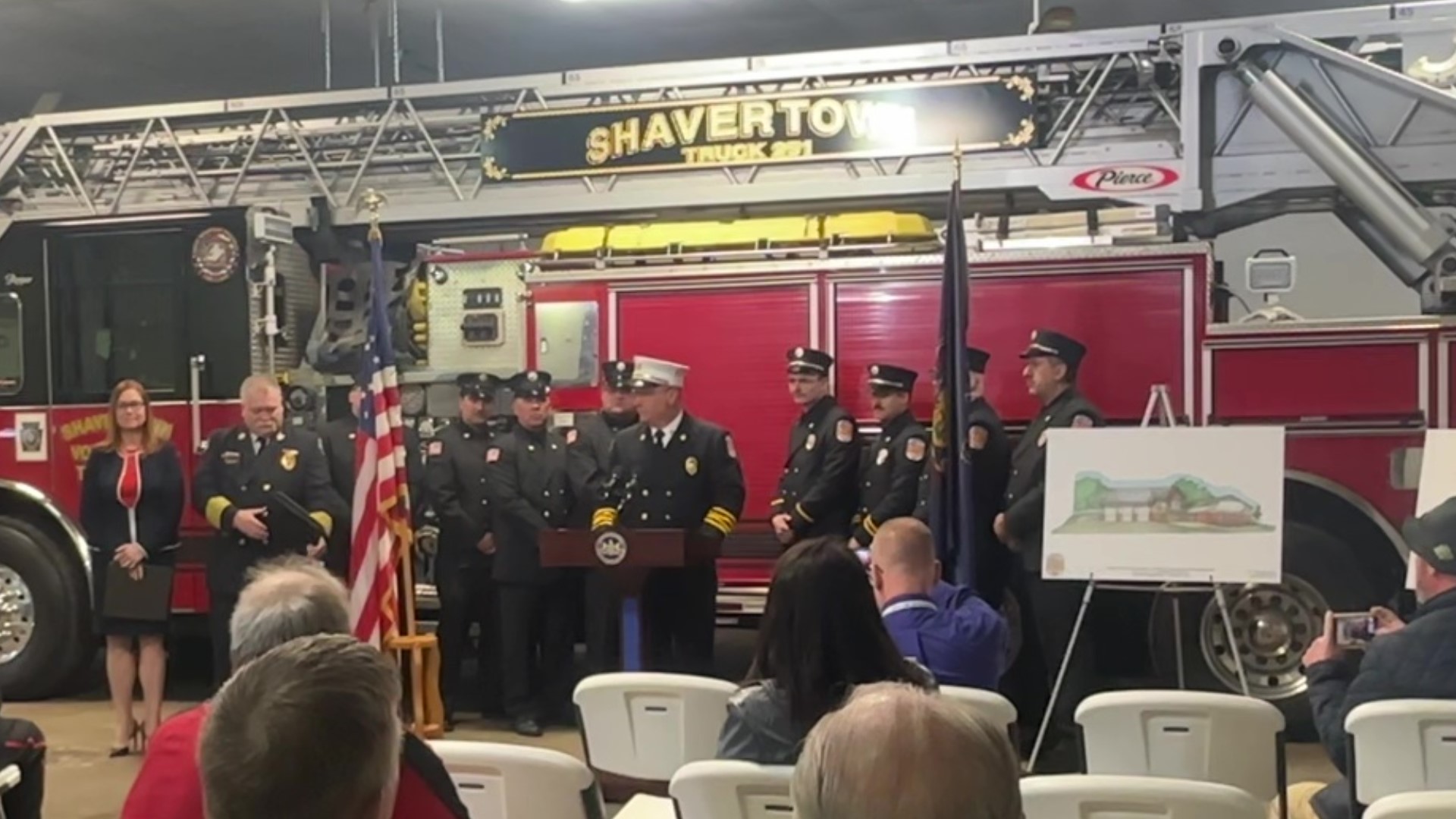SHAVERTOWN, Pa. — For nearly a century, the Shavertown Volunteer Fire Department has been operating out of a building on North Main Street.
"We're coming up on 100 years," explained Fire Chief Ryan Moss. "1925 was our charter. So, in 2025, it'll be our 100th anniversary. So, pretty close to 100 years in that building."
With the next 100 years in mind, the department bought another building nearby and is planning to renovate it into a more efficient space for its needs.
However, the department will likely need state grant money to make these plans a reality.
"Potentially, it could definitely help any debt reduction we have with building the building, renovating, adding different training, crops, equipment to help further us better down the road," said Moss.
Pennsylvania State Fire Commissioner Thomas Cook visited the department to talk about legislation that will not only keep a $30 million grant program going for departments but possibly double it when paired with the governor's new budget proposal.
"So that when June 30 of this year comes around and the existing program sunsets, we don't have a gap," said Cook. "One of the worst things that would happen to us is the program expires without a replacement. Because the funding that comes out of this, the current $30 million of funding, is extremely critical to keep the doors open, the lights on, the fire trucks on the road."
Cook says the costs of all equipment needed for proper emergency services are going up, making grant programs from the state crucial.
"When you talk about a ladder truck, like the one here in this firehouse, costing $2 million. Now, you cannot raise enough money by chicken barbecues and hoagie sales to come up with $2 million to buy a fire truck," said Cook.
While Cook works with the legislature to keep grant programs in place, the Pennsylvania Department of Health is working to help with another problem facing volunteer departments—recruitment.
Other legislation in the works aims to pass partial training reimbursement for new members.
"It is an incentive. Because we don't want paying for it to be a barrier. So, if we can lower that barrier, and that encourages folks to become first responders, then that's our goal," explained Dr. Wendy Braund, the Department of Health's deputy secretary for health preparedness and community protection.
It will be up to the state legislature to work with the governor to make both efforts a reality for departments across the state.

